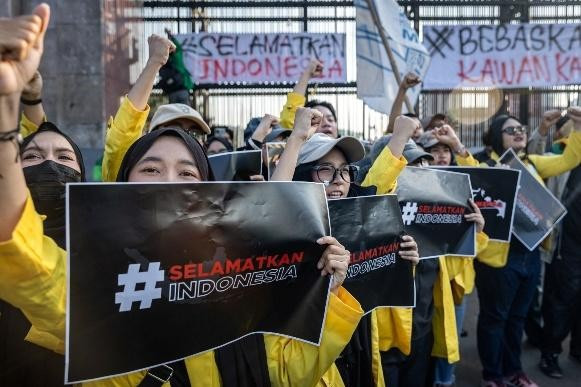Popular Reads
Top Results
Can't find what you're looking for?
View all search resultsPopular Reads
Top Results
Can't find what you're looking for?
View all search resultsCentral banks have done their part, now others must step up
Governments must cut short the rise in public debt and accept that interest rates may not return to super low pre-pandemic levels.
Change text size
Gift Premium Articles
to Anyone
C
entral banks have shown they can take forceful action to head off the most dramatic increase in inflation in a generation. They have taken steps to protect the purchasing power of people and firms. Although the last mile to return to price stability is not yet complete, the end is well in sight.
Inflation hurts most those who are least able to hedge against it. Intervention was needed to remedy what seemed a relentless surge in the cost of living. To restore price stability, central banks unleashed the biggest and most synchronized global monetary policy tightening in decades.
This episode has shown the value of having independent institutions outside the political process as the guardians of price stability. Their ability to operate at arm’s length from governments helps central banks take what can be unpalatable and politically unpopular decisions in the interests of wrangling inflation down.
To be sure, circumstances helped. Recovering trade logistics and falling commodity prices supported disinflation. However, we saw in the 1970s how a burst of inflation, if not countered, can trigger a shift to a high inflation mindset. By acting with determination, in line with their mandates, central banks have prevented high inflation from becoming entrenched. Without prompt and decisive central bank action, restoring price stability could have come at a significant hit to growth and jobs.
Now is not the time to let down our guard. Inflation is lower, yet not low enough in some places. Upsets can come in the final minutes of any game. Compared with other prices, the cost of services and take-home pay are both lagging pre-pandemic trends and a rapid catch-up could see renewed upward pressure on inflation. Central banks must stay the course.
The post-pandemic inflation spike was only the latest in a series of tests for central bank policies. In our latest Annual Economic Report, we at the Bank for International Settlements look at the tumultuous period since the turn of this century, including major financial crises and the unprecedented experiment in turning the global economy on and off again due to the pandemic.
We reflect on the lessons learned and the implications for the future. Above all, our analysis shows that a key lesson from the past quarter-century is the need to recognize what monetary policy can and cannot do.
This period demonstrated the power of monetary policy. It showed that central bank emergency actions, deploying their firepower to ensure liquidity keeps flowing, can stabilize the financial system, support the flow of credit to firms and households, and prevent the economy from going into a tailspin. We’ve learned that central banks are important players for financial as well as price stability.
However, we’ve also learned that monetary policy cannot fine-tune inflation. It is vital that central banks act when inflation overshoots. But such measures are less warranted, and may even be counterproductive, when inflation sits a few fractions of a percent below central bank targets. Inflation targets should be a guide, not an obsession.
Exceptionally strong and prolonged monetary easing aimed at stimulating too-low inflation becomes less effective the longer it lasts and can generate unwelcome side effects. These include a build-up of debt, now at historic peaks, and distortions to markets and investments. It also narrows central banks’ room for policy maneuver, making it harder to exit from stimulus measures and detangle central bank and government policies.
Policies work better as part of a coherent whole. Even now, with central banks still trying to ensure inflation stays under control, we see that around the world, budget giveaways brought in during the pandemic are at risk of acting at cross-purposes by stimulating the economy and stoking inflation.
A final lesson is that central banks alone cannot deliver a durable increase in economic growth and prosperity. Laying the foundation for a brighter economic future requires actions from other policymakers, especially governments.
To reap benefits in the longer term, governments must act with haste to put budgets on a sound footing and ready their economies for the future. They must cut short the rise in public debt and accept that interest rates may not return to super low pre-pandemic levels. Debt sustainability is key for both price and financial stability as well as keeping the value of the currency steady.
In the long run, structural reforms are key to sustainably lifting the standard of living, improving economic well-being and giving people a sense of security. This means taking lasting measures such as promoting competition, enhancing flexibility and spurring innovation.
Scarce public funds should support the economy’s adjustment to new realities such as climate and technological change, including the artificial intelligence revolution. Only a solid foundation allows us to build for the future.
***
The writer is general manager of the Bank for International Settlement.











